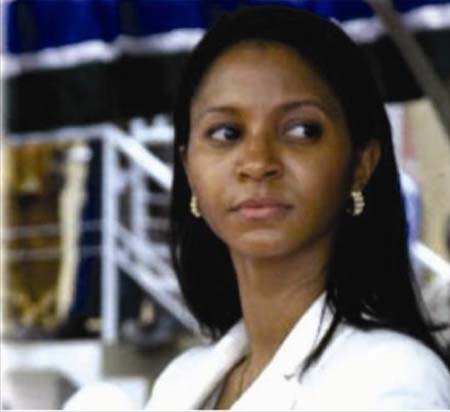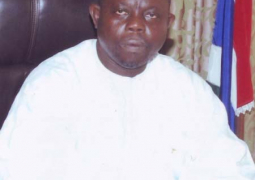
It is being attended by national and international women delegates, on the theme: “Pan-Africanism and African Renaissance in the Context of Women and Youths”.
Vice President Isatou Njie-saidy attended the opening ceremony, and read the keynote address on behalf of the first lady Zineb Yahya Jammeh.
In her remarks delivered at Thursday’s opening ceremony, Zineb Jammeh said Africans governments must invest in the education and training of young people and, more generally, in science, technology, research and innovation which remain critical to drive Africa’s modernization and development in all spheres.
“They must act with great speed and sense of urgency, with the equal participation of women, to create free trade areas geared towards an African common market, create the five regions as building blocks of the union, and facilitate the free movement of people”.
She added that as a catalyst for change, Africans must eliminate all obstacles to development and progress by uniting as a formidable force in promoting trade and investment within the continent.
She said milestones could only be achieved if Africa refrains from wars, neocolonialism, terrorism, drugs, and other vices that are inimical to development.
Gender inequality was not only inimical to personal development and well-being, but also undermines national development, and reducing or eliminating inequalities in society was, therefore, critical to improving the socio-economic well-being of men, women and girls, she continued.
“Inequalities could be manifested in areas such as access to social services, wage employment, educational opportunities, the exercise of one’s basic human rights, control over productive resources, institutional support services and freedom to make informed choices and decisions”.
The Gambia government has recognized the potentials of all including women, boys and girls, and has since accorded high priority to gender equality and the empowerment of women, the first lady continued.
“This is clearly manifested in the positions of responsibility women continue to occupy, and the myriad of development interventions geared towards improving the status of women, and girls”.
She went on to cite the Gambia demographic and health survey2013, which revealed that significant gains were made in reducing the maternal mortality rate by nearly 50 per cent, from 730 per 100,000 to 434 per 100,000 live births in 2013.
Infant mortality dropped from 92 per 1000 to 34 per 1000 in the last two decades.
In basic and secondary education, gender parity had been attained and in some schools female enrollment surpassed that of boys.
Regarding the promotion and protection of the rights of women and girls, the government continues to ratify, domesticate and implement international instruments including the AU Protocol, convention on the Elimination of Discrimination Against Women (CEDAW), the AU Solemn Declaration on Gender Equality in Africa, Beijing +20, among others.
Legislative measures are also in place which protect the rights of women and girls, and these include the Women’s Act 2010, the Sexual and Domestic Violence Act 2013, Children’s Act 2005 and Trafficking in Persons Act 2007.
Hon Fatou Mbaye, chairperson of the National Women’s Council, said the theme of the conference is apt and relevant in the drive towards the empowerment of women.
“We will no longer be in the shadow, but work side by side with men to make Africa and the world a better place,” she said.
Fatoumatta Jah-Mbenga, president of the National Women’s Federation, said the rationale behind the formation of the federation is to complement the efforts of the ministry of Women Affairs.
Their greatest resource is the women and youths of the country, and investment in their training and education is very important, she added.
She said the role of business enterprises is important in improving pan Africanism.
Ade Mamanyane Lekoetje, the UNDP representative, said the objectives include to eradicate poverty, place women on the path of sustainable development, growth and accelerate the empowerment of women, among others.
This could not be achieved if the women are not empowered, she continued, adding that the Gambia also boasts a good number of women in high-level decision-making positions, and the Vice President of the country is an example and a role model.
She said the UN is proud to be a credible partner of the Gambia government in the empowerment of women and girls.
The UN official announced that currently the UN is working with the government in creating a comprehensive program for women and youths.



